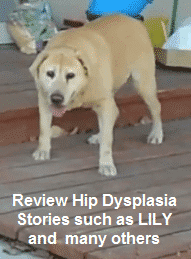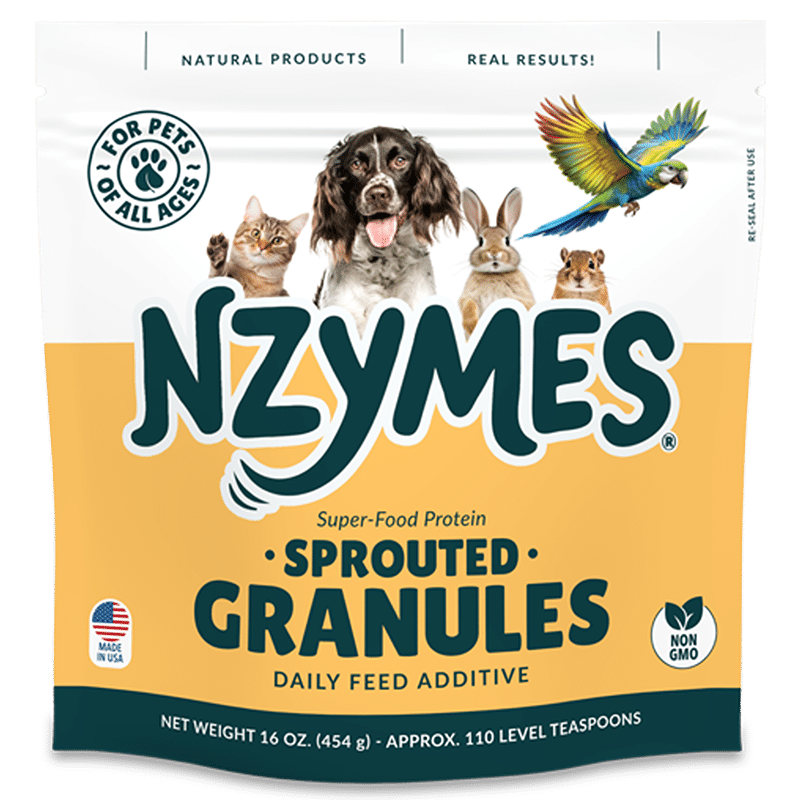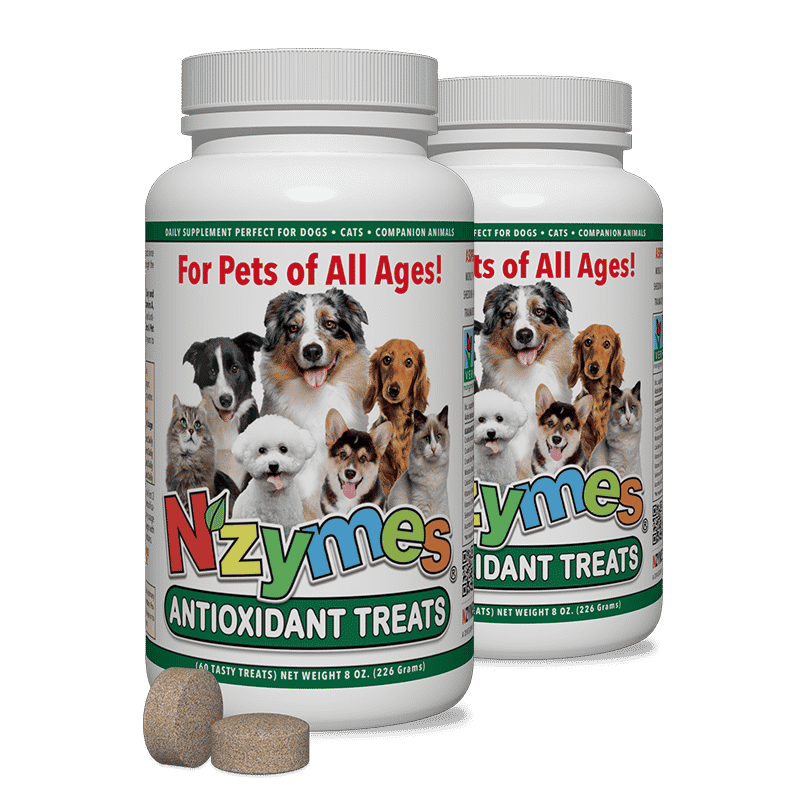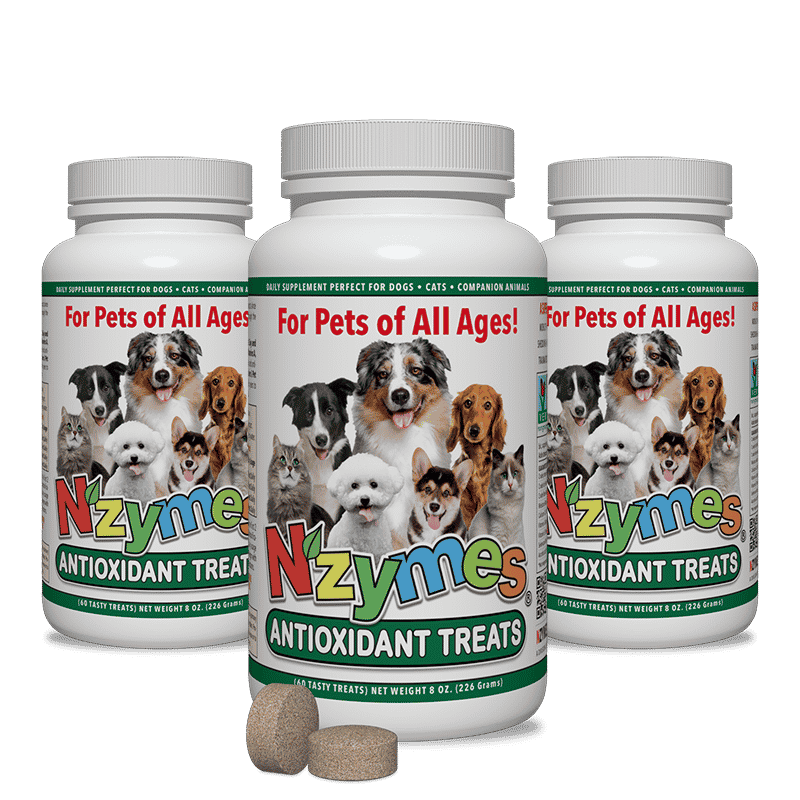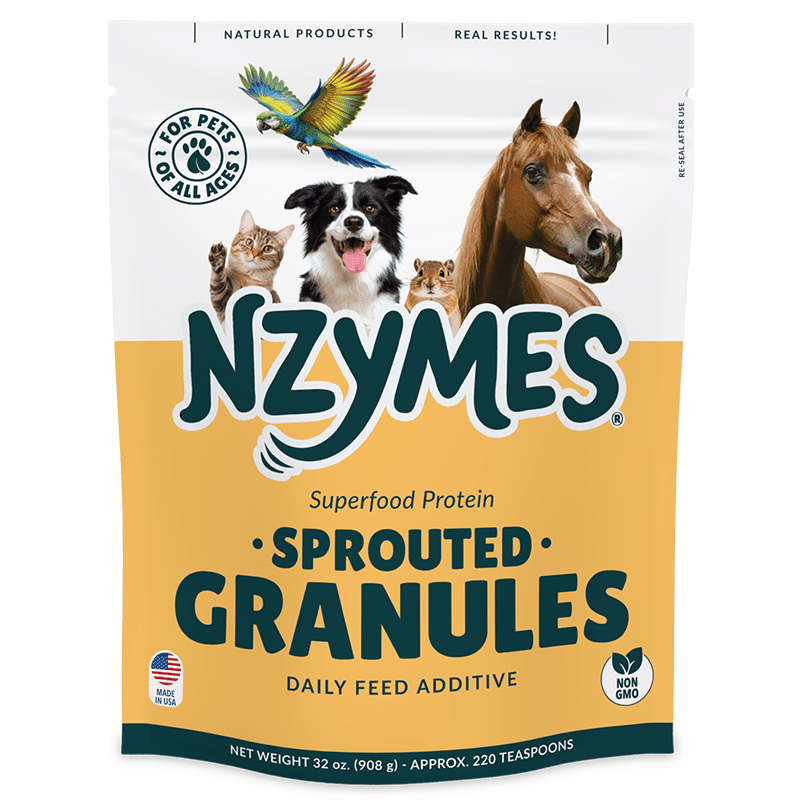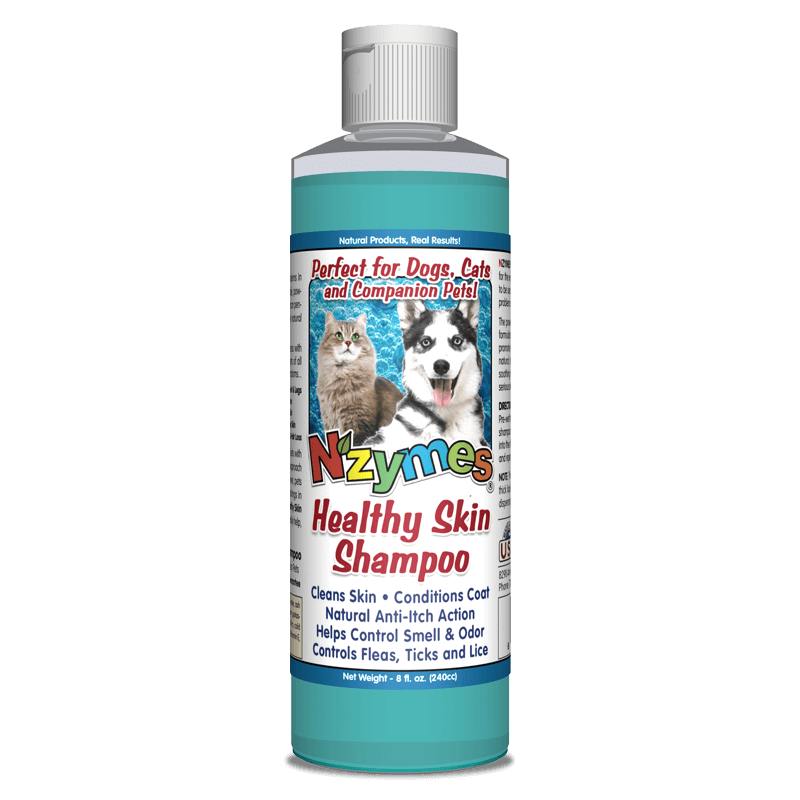Canine Hip Dysplasia, Further Info & Considerations
Hip dysplasia with dogs can be a devastating diagnosis; no two ways about it. You witness your dog experiencing discomfort, and the options facing you can be scary, often ineffective and possibly quite expensive. Sadly, hip dysplasia is a growing problem (predominantly for large breed dogs) in our modern times, likely due to the growth in breeding as a ‘business’ and the hereditary nature of the condition. Just 30-40 years ago, this was nowhere near the common problem it is seen to be today.
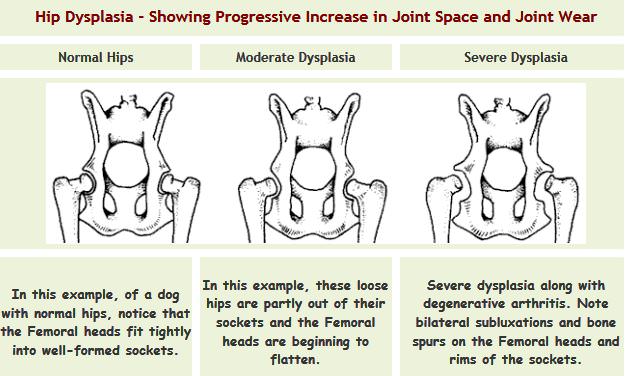
As mentioned, since there is much evidence that hip dysplasia with dogs, as a ‘condition’ (not a disease), of hereditary or genetic genetic nature, it is most often assumed to be passed on (irresponsibly) from generation to generation due to the proliferation of breeders driven by ‘for profit only’ motives. Conversely, reputable breeders will certify their breeding stock with the Orthopedic Foundation of America or OFA.
While there is much research showing hip dysplasia with dogs being tied to genetic predisposition, there may certainly be other causative factors involved. One may be able to link the condition to rapid growth and weight gain, so paying close attention to your dog’s diet is highly advised. As another factor, it is possible and often likely for such bone growth disorders (like malformed joints) to be created by poor nutrition – and unfortunately, most popular pet foods (including some that ‘sound’ really good, like the ones you see commercials for and the ones that your vet sells) all contain subpar and downright dishonest ingredients. While these industries enjoy billion dollar payouts, unsuspecting pet owners are left paying in.
So… Before you make any decisions about moving forward, consider these few things…
Hip Dysplasia in Dogs, Three Considerations
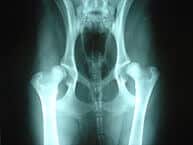
1. The Diagnosis
Make sure it is what they say it is – first and foremost.
There are actually many hip issues in dogs that are misdiagnosed as hip dysplasia – such as osteoarthritis, cauda equina syndrome or even elbow or shoulder dysplasia. Do not accept this diagnosis without hip x-rays. X-rays are the only thing that can conclusively determine if your dog indeed has hip dysplasia.
2. The Surgery & Medications
There are 4 or 5 different types of surgery for canine hip dysplasia – depending on the age of your dog and the stage of his or her problem. Most of these surgeries offer a marginal 50% success rate and are very expensive – sometimes up to $5k. This is a tough decision – so be sure to weigh the possibilities of a favorable recovery versus the chance that the outcome may not produce the desired results. Take the extra time to seek knowledgeable counsel and do your own research as well. It could save you much heartache and expense.

Because of cost, many pet parents aren’t able to consider surgery as a treatment option. In this case, your Vet may offer a regimen of medications to reduce the severity of this painful problem. The issue is that most of the medications only provide relief for the pain – not relief of the actual problem. Plus the side effects of these pain medications can often be damaging as well. Again – do some research before damaging drugs become part of your pet’s daily routine.
The side effects from pain management drugs range from minor to severe. The most common side effects associated with NSAIDs include gastrointestinal, liver and kidney issues. Some side effects include the following:
- Vomiting.
- Diarrhea.
- Stools that are black or contain blood.
- Appetite change.
- Increase or decrease in activity level.
- Yellowing of the skin, gums or eyes.
- Increased thirst.
- Increased or decreased urination.
- Skin irritation or itching.
- Loss of coordination.
- Seizures.
*Stop use and consult your veterinarian if you suspect your dog is experiencing adverse effects from pain medication use.
3. Consider Better Nutrition and Supplementation
Making sure your pet’s food is a good one is a key factor of support for hip dysplasia with dogs. But in today’s pet food marketplace, it is easy to be fooled by pretty bags with beautiful images, pictures of dogs jumping and playing. Supermarkets, discount stores and large pet retailers and Veterinarians sell millions of dollar of these pets foods each year under the guise there all is healthy and natural. But when you read the real ingredients required on the packaging you find a lot less than you thought you were buying. Chicken by-products instead of balanced sources of protein for bones, muscles, skin, and hair. Often they are filled with cheap carbohydrates like wheat gluten, corn starch, brewers rice which are full of sugar substrates or high sugar conversion which can increase inflammation and discomfort in your pet’s joints and muscles. Lastly, many of these pet foods contain food colorings, chemical additives, and preservatives that pet industry experts consider unhealthy to consume.
Better quality pet foods are out there, but you have to look to the small retailers that focus on selling the better quality pet foods. Please see this Healthy Pet food List that we recommend for dogs everywhere.
All things being considered, one thing is important to keep in mind: The vast majority of dog owners have found success for hip dysplasia issues with trial usage of Nzymes supplements. Just look online and you’ll meet many conscientious pet parents who have approached hip dysplasia with dogs with nothing more than balanced and properly supplemented nutrition. Your dog cannot get everything needed just from the main food source; even when quality nutrition is present, it is ALL still cooked or processed – nothing living!
While it can easily be said, “not all dogs will respond to supplements in the same way”, it can also be said that there isn’t anything to lose in giving them a chance. A little extra time to try a nutritional path could offer you a great deal of potential comfort. Click here for access to our full-scope of information about hip dysplasia.
Super-food Support for Joint and Muscle Health
Granules for the Economical Preference, Treats for Convenience

